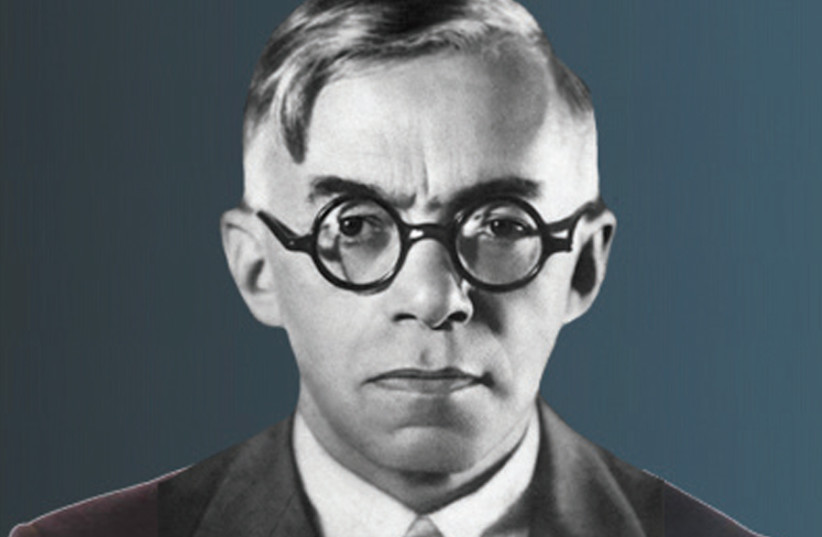Congratulations to Benjamin Netanyahu as Israel’s prime minister. In addition to being the head of the governing coalition, he remains the leader of Likud, the Knesset’s largest party, with over half of the coalition’s Knesset seats. Netanyahu must remain true to the democratic ideology of his Revisionist Zionist, Likud, Herut heritage.
Likud’s patriarchs were Vladimir Jabotinsky, Benzion Netanyahu (Netanyahu’s father) and Menachem Begin. This trio also is known for an insistence upon Liberalism, e.g. democratic principles. The Jewish people worldwide need Netanyahu to reaffirm this element of his birthright.
As Dan Meridor told journalist Yonah Jeremy Bob, “Begin called the Likud by its official name of the Likud Movement or the National Liberal Movement... [For Begin] the name of [Likud’s predecessor], Herut... referred to national liberty and private liberty.”
Begin was acutely sensitive to the danger of a majority abusing their power to adhere to the partisan will of the heads of the governing coalition. “We have learned that an elected parliamentary [Knesset] majority can be an instrument in the hands of a group of rulers and act as camouflage for their tyranny.” To be a bulwark against majority abuse, “the nation must determine [and protect] its [citizens’ basic] rights.”
Begin articulated a separation of powers. The executive must not inflate its power by using its majority in the Knesset in order to impose its will on the legislature. The judiciary must remain independent, e.g. the supremacy of the law expressed in a panel of independent judges. In other words, Israel needs an autonomous High Court to “decide, in the case of a complaint, whether the laws made by the Knesset... abide by the fundamental [basic] laws or contradict the rights of the citizen that are stated in that law.”

Is this the voters' wish?
Begin stood against members of the Knesset majority insisting that since “the voters have spoken,” parties not part of the governing coalition ought to sit back and adhere to the “will of the people.” Yet in Begin’s view, “we are convinced – as we have witnessed throughout the world – that without an opposition, there can be no democracy; without it, the essence of human liberty is in danger.”
Begin warned against efforts to suppress the rights of individual citizens who are part of minorities, notably Israeli Arabs. For Begin, “in the Jewish state, there must be and will be equal rights for all its citizens, irrespective of religion, nation or origin.”
Both Begin and Benzion Netanyahu were disciples of Vladimir Jabotinsky. As noted by philosopher Micah Goodman, Jabotinsky expressed “a liberal worldview... the individual does not belong to the state; the state belongs to the individual.”
For Jabotinsky, “if we have a Jewish majority in this land, we will first and foremost establish a regime of complete, total and perfect equality of rights, without a single exception. Whether one is a Jew, an Arab, an Armenian or a German matters not at all to the law – every path must be open to every citizen.”
The pertinent question for Israeli and world Jewry is whether Netanyahu will hold fast to the principled legacy of Likud. The Likud constitution’s self-definition is to be a national-liberal party. Its goals include safeguarding moral values and ethical principles, maintaining a democratic form of government, guaranteeing the supremacy of law, human and civil rights, individual freedoms, equal rights and opportunities for all citizens.”
In an interview with journalist Bari Weiss, Netanyahu – before officially becoming prime minister – insisted that all critical decisions will rest with him. Coalition partners have joined him and not vice versa. He explained that “my views of democracy are informed by the basic texts of American democracy. I read the Federalist Papers, all 80 of them... John Locke and Montesquieu are my heroes because I think that there have to be checks and balances... I believe in democracy not only within my own party but also in the public... in the balance between the three branches of government but also in a basic bill of rights. You can have a majority but you can’t decapitate all red-headed people.”
“[As I assembled previous coalitions] I’ve often heard... doom projections but none of them materialized. I maintained Israel’s democratic nature... Israel is not going to be governed by Talmudic law. We are not going to ban LGBT forums... We are going to remain a country of laws. I govern through the principles that I believe in.”
What ought to be done by supporters of Israel who share concerns about Israel’s democracy in the face of pressures by the Haredim, the Religious Zionist Party, Otzma Yehudit and Noam?
In his recent autobiography, Netanyahu offers advice. Benzion Netanyahu often cited Jabotinsky’s essay, “The Theory of Public Pressure.” Jabotinsky “posited that the most potent influence on democratic governments is the pressure of public opinion.” Netanyahu noted that Benzion Netanyahu “was the quintessential practitioner of Jabotinsky’s formula: Influence governments through public opinion, influence public opinion by appealing to justice, influence leaders by appealing to interests.”
Following that advice, private and public pressure is being applied from diverse sectors. Opposition leader Yair Lapid has articulated his colleagues’ sense of alarm. Long-time devotees of the ideology of Likud have spoken as well, notably Reuven Rivlin, Dan Meridor, David Bitan, Ayelet Shaked and others.
In the words of Tzipi Livni, daughter of a pre-state illustrious Irgun commander and a justice minister under Netanyahu, “The majority of the public voted for this government. But the idea that the majority can do whatever it wants is not democratic.” Yes, in a democracy, the majority gets to choose, but there are boundaries and restrictions.
We pray that Netanyahu will hold fast to his democratic Likud heritage and to the bi-partisan, Right and Left, consensus in defense of the democratic nature of Israel.
The writer is the rabbi emeritus of Congregation Agudath Israel in New Jersey. He serves as president of Mercaz Olami, the Zionist Organization of the Conservative Movement.
